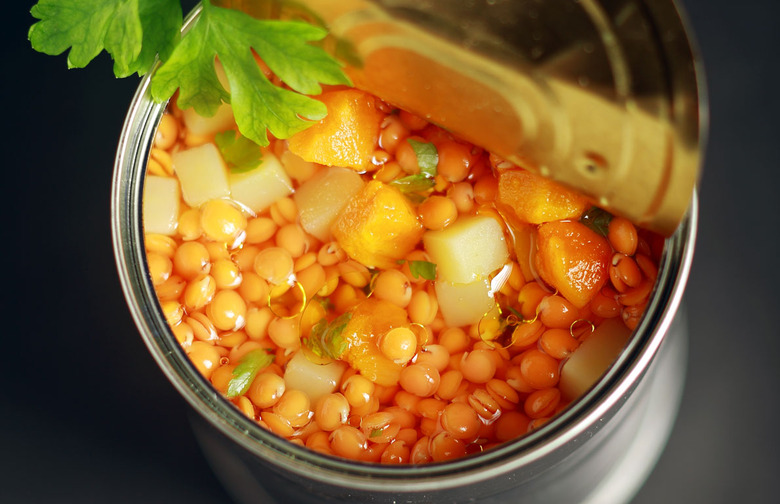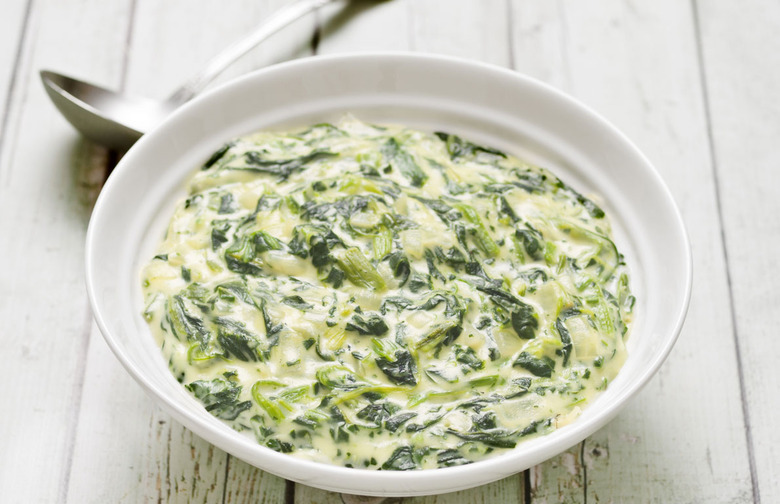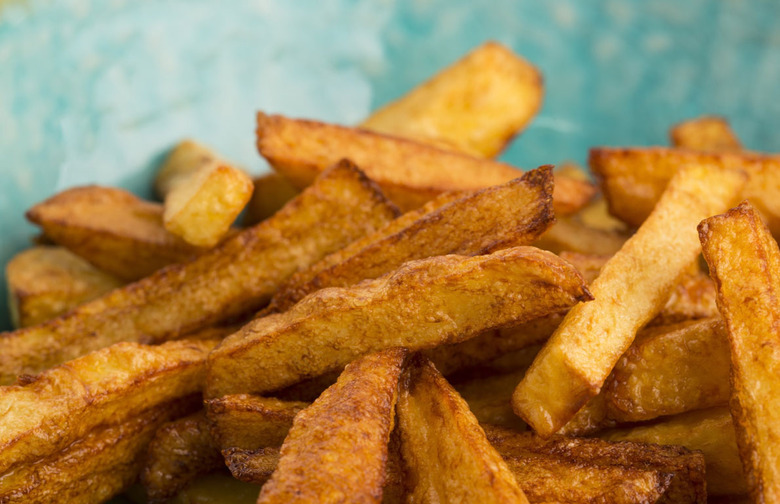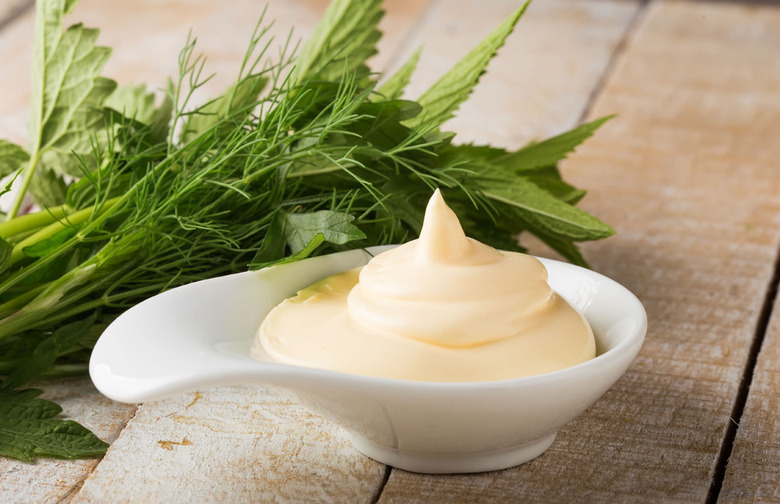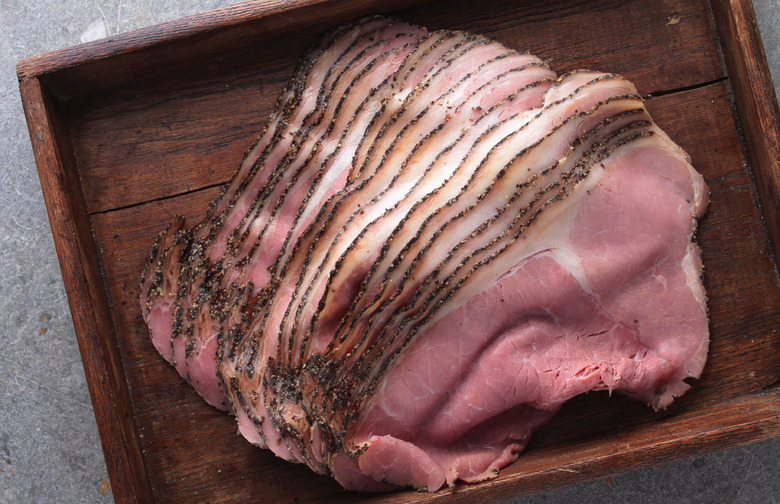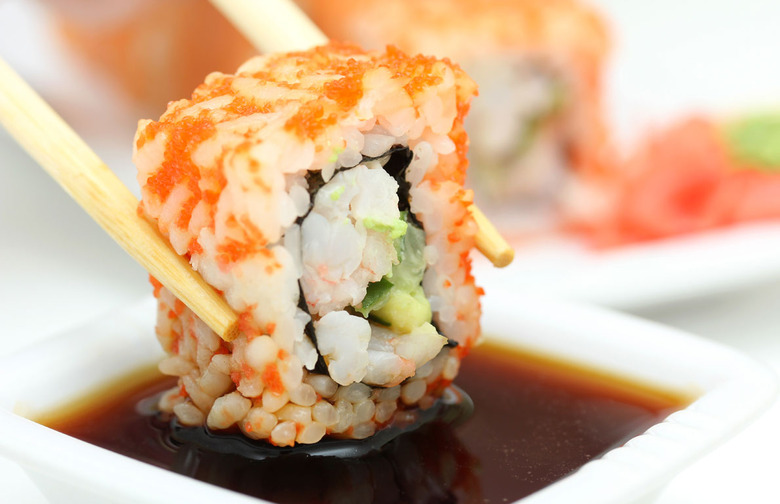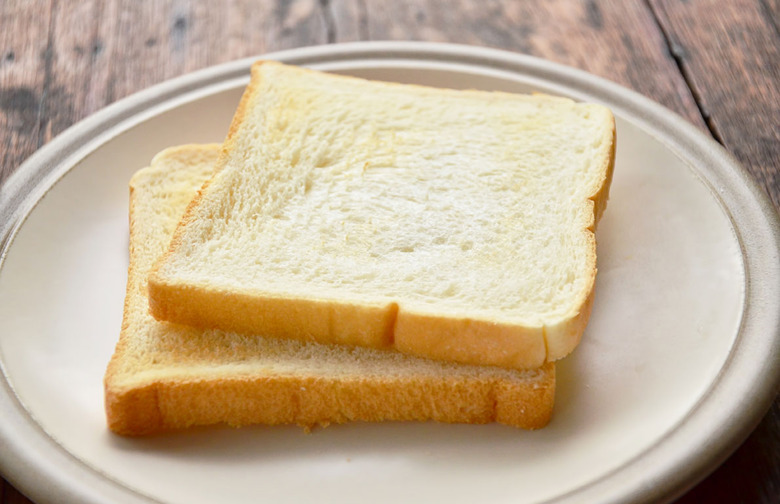Foods That Can "Break" Your Heart
Stay Heart-Healthy
If you want to keep your ticker ticking follow the expert advice above and check out our guide to the foods you should be avoiding.
Canned Soups
"Canned soups are popular especially in the winter months, because they are warm, hearty, and generally inexpensive. However, they are bad for the heart because they contain excessive amounts of sodium (salt). Excess sodium is unhealthy for the heart because it causes the body to retain water, consequently putting a burden on the blood vessels and heart, leading to high blood pressure and ultimately the possible development of heart disease. According to The American Heart Association, the daily-recommended sodium intake is 1,500 milligrams – or ¾ of a teaspoon per day. Canned soups do come in low-sodium varieties and are labeled accordingly. A canned soup that contains less than 140 milligrams per serving is considered low-sodium food. A low- sodium alternative to canned soups is to make your own broth-based soup with vegetables and lean proteins such as beans and chicken. This kind of soup will be high in fiber and protein and low in salt."
Tanya Zuckerbrot, registered dietician and creator of the F-Factor Diet.
Cheesecake
"Americans may love this dessert, but one piece (one Nutrition Labeling and Education Act serving) contains over 400 calories, 28 grams of fat (43 percent daily value), 12 grams of saturated fat (60 percent daily value), 69 milligrams of cholesterol (23 percent daily value), 548 milligrams of sodium (22 percent daily value), and 27 grams of sugar. All these numbers may seem confusing but all you need to really know is that 20 percent or more of daily value is considered high. Cheesecake is high in all of the above and dangerously high in terms of fat and saturated fat. Eating foods that contain saturated fats raises the level of cholesterol in your blood. High levels of LDL cholesterol in your blood increase your risk of heart disease and stroke.
Deborah Orlick Levy, registered dietician and Carrington Farms Health and Nutrition Consultant
Creamed Spinach
"As healthy as spinach is for you [rich in vitamin C, potassium, vitamin A] creamed spinach, unfortunately — not so much. Most recipes are made with butter and lots of heavy cream providing more than enough artery clogging saturated fats (around 12 grams per serving)."
Keri Gans, registered dietician and nutritionist
Doughnuts
"Doughnuts have no nutritional value. Comprised of sugar, refined carbohydrates, saturated fats, and then deep-fried, these treats are definitely bad for the heart...and even more so when topped, infused, and rolled with sugary frostings, glazes, custards, and sprinkles. A typical glazed doughnut has 260 calories, 14 grams of fat, 6 grams of saturated fat, 31 grams of carbohydrates, and 1 gram of fiber. According to the American Heart Association, excess intake of sugar is one of the leading causes of obesity, high blood pressure, inflammation in the body, and high triglyceride levels – all things that are very bad for your heart. A study published in JAMA Internal Medicine confirms that diets high in sugar increase the risk of heart disease, even if a person is not overweight or obese. Additionally, consuming saturated fats raises total cholesterol levels, and refined carbohydrate consumption also leads to an increased risk of heart disease."
Tanya Zuckerbrot
Hot Fudge Sundaes
"Studies have shown heart benefits from chocolate and nuts; however, combine them with ice cream and whipped cream and you are looking a high-fat and high-calorie disaster. Definitely can be enjoyed once in a blue moon, but not on a regular basis, especially since one serving can provide around 20 grams of saturated fat."
Keri Gans
French Fries
"French fries are a calorically dense food that most people eat along with fatty, high-sodium dishes like burgers and steaks. Many also dip their French fries in condiments that contain sugar and fatty mayonnaise. Alone, French fries contain three ingredients that make them bad for the heart. First, they contain saturated fat, which increases LDL cholesterol levels. Second, they contain excessive amounts of sodium, which can put a strain on the heart and cause high blood pressure. Third, they contain large amounts of carbohydrates, which when eaten in excess are stored in the body as fat."
Tanya Zuckerbrot
Mayonnaise
"You may not think you consume a lot of mayonnaise, but it's probably lurking in foods that you regularly consume, like salad dressing, egg salad, spicy tuna sushi rolls, dips, and coleslaw. One tablespoon of mayo has 10 grams of fat, and unless you are measuring the condiments you put on your BLT or dip your veggie sticks into, most people consume more like three to four tablespoons in one sitting. Mayo's high fat and saturated fat content causes total cholesterol levels as well as LDL cholesterol levels to rise. Over time, this may lead to clogged arteries, and increases your risk for heart disease. If mayo is a condiment you cannot live without, opt for a "light" variety, which generally contains closer to 4 grams of fat per tablespoon serving."
Tanya Zuckerbrot
Onion Rings
"Onions are rich in sulfuric compounds and some studies suggest that they may help lower blood pressure and reduce the risks for heart attacks — but once you deep-fry them in breading, you're defeating all those health benefits. One serving of onion rings can provide up to 900 calories, 18 grams of saturated fat, and 1700 milligrams of sodium."
Keri Gans
Pastrami
"A pastrami on rye can be a deli favorite for many, but heart-wise not a winner. Four ounces alone can provide 12 grams of saturated fat and 380 milligrams of sodium and that is if you are choosing to go basic. If you go for the works, as in a Reuben sandwich (pastrami, sauerkraut, cheese, and Thousand Island dressing) you are looking at upwards of 980 calories, 2320 milligrams of sodium, and 20 grams of saturated fat."
Keri Gans
Soy Sauce
"If you enjoy Chinese food or sushi, chances are you are a fan of soy sauce. But, did you know that one tablespoon of soy sauce has over 900 milligrams of sodium. It's easy to see how using this condiment could wreak havoc on your blood pressure and heart. Even the reduced sodium options still have 500 milligrams of sodium per tablespoon. Tip: ask for sauces on the side when you order Chinese and less salt for the food. Also, try to enjoy your sushi sans soy sauce using just wasabi for the extra kick."
Deborah Orlick Levy
White Bread
"White bread is made from refined flour, wheat that has been stripped of important nutrients such as fiber during processing. Because of this process, unlike whole wheat bread, a slice of white bread contains virtually no fiber, so you get none of this nutrient's benefits that have been shown to lower heart disease risk. High intake of refined carbohydrates such as white bread leads to an increase in triglycerides. The American Heart Association states that high blood triglyceride levels have been shown to increase risk of stroke, coronary artery disease, and heart attack. Another study published in the American Journal of Clinical Nutrition reinforces this point reporting that high consumption of refined carbohydrates may lead to insulin resistance and increases the risk for heart disease."
Tanya Zuckerbrot


